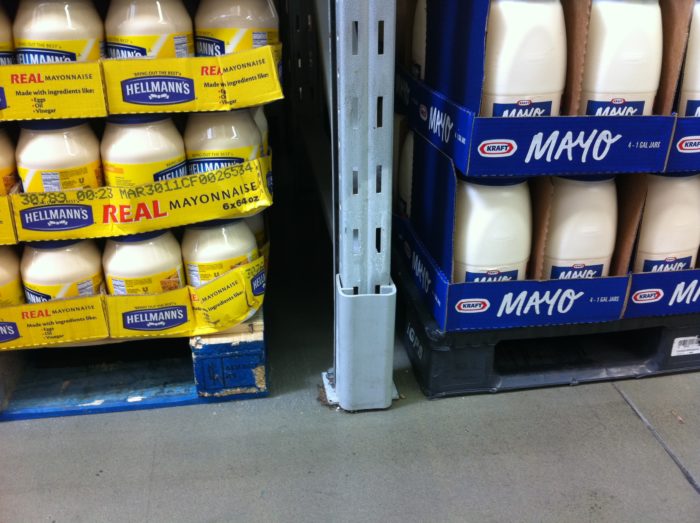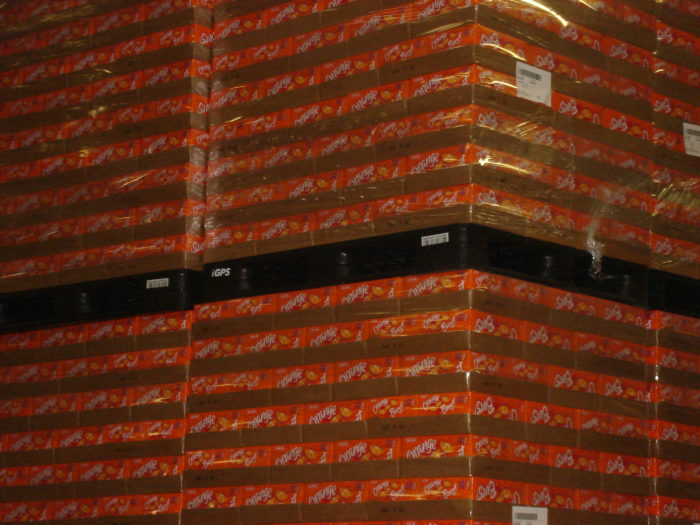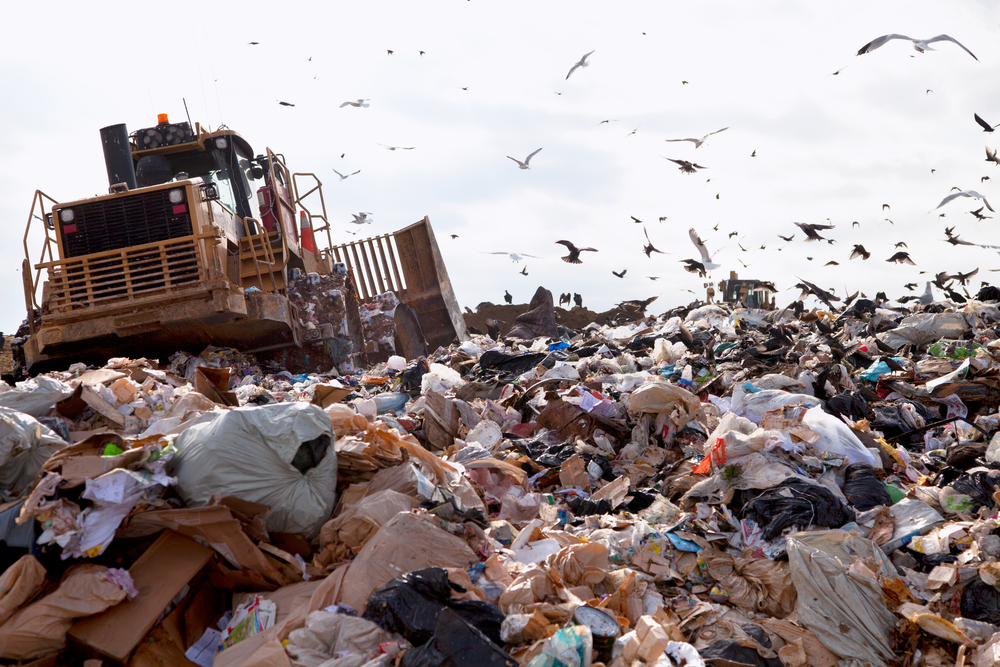Food waste is a growing problem. It’s estimated that by 2030, total annual losses due to food waste could reach $1.5 trillion globally. Misuse of resources is one part of this problem, as when manufacturers overproduce or overstock items that go bad before sale. However, much of this food waste takes place before products ever reach retailers or consumers due to inefficiencies in the supply chain.
Reducing food waste in the supply chain is crucial, not just due to the growing food waste crisis, but also to protect a company’s bottom line. Food waste can be costly, especially when an entire shipment must be discarded after a refusal or recall. Having multiple loads of food products rejected due to damage or poor condition can also have long-term consequences for a manufacturer, as continued problems with delivery may make retailers wary of doing business with that manufacturer. Enforcing better standards in tracking, record-keeping, and handling can help companies reduce food waste and lower their Total Cost of Business (TCOB).
Oversights That Lead to Supply Chain Food Waste
 Usually, the issues that cause waste in the food industry aren’t major events like warehouse fires or natural disasters. Instead, they’re small problems that add up until they become bigger problems. Here are a few common causes of supply chain waste:
Usually, the issues that cause waste in the food industry aren’t major events like warehouse fires or natural disasters. Instead, they’re small problems that add up until they become bigger problems. Here are a few common causes of supply chain waste:
- Rejected loads: A load of products with obvious issues, such as product damage or spoilage, will be refused by the retailer. Using shipping pallets that do not meet retailer specifications may cause load rejection as well. Retailers that only accept block pallets will refuse a load of products transported on flimsier stringer pallets. A rejected load of perishable products is usually not salvageable and must be immediately taken to a food bank or disposed of at a dump.
- Damage during transportation or handling: Damage may occur to food products in the course of normal handling and transportation as the products are shipped from the manufacturer to distributors and warehouses and then on to retailers. Wood pallets are a common cause of damage to products during transportation, storage, and handling. The hardware that holds the pallets together, such as screws and nails, can work free of the wood and puncture product packages, contaminating food. Older pallets may splinter or may even come apart completely, endangering the entire load of products.
- Temperature management oversight: Most perishable food must be kept within a recommended temperature range to reduce the growth and spread of dangerous bacteria like E. coli and salmonella. If a consistent, safe temperature isn’t maintained throughout all stages of the supply chain, these products will pose a risk to consumers and will require disposal.
Something as simple as a nail coming loose or an employee forgetting to check the thermostat can cost a company thousands of dollars in lost products.
Because fresh food products–especially produce, meat, and dairy–are so prone to spoilage, something as simple as a nail coming loose or an employee forgetting to check the thermostat can cost a company thousands of dollars in lost products. However, there are a number of ways to reduce food waste in the supply chain, some as simple as the problems that created it in the first place.
Ways to Reduce Food Waste in the Supply Chain
 Many of the common causes of food waste in the supply chain are a result of outdated practices. Staying up-to-date on innovations and trends in the supply chain can help reduce both product damage and waste. The following areas are particularly important:
Many of the common causes of food waste in the supply chain are a result of outdated practices. Staying up-to-date on innovations and trends in the supply chain can help reduce both product damage and waste. The following areas are particularly important:
- Record-keeping: Supply chain managers can now keep better records of the temperature and handling of their products through computer programs. Cloud-based supply chain management (SCM) software helps keep track of expiration dates and how well temperatures and humidity were maintained in order to limit the risk of spoilage and bacterial growth. A software program can be accessed and updated more easily than paper records, reducing the likelihood of human error. This is particularly useful in cold chain management, which requires that products be kept at a consistently low temperature.
- Tracking: SCM plays a critical role in the process of tracking individual shipments through the supply chain, which helps managers better pinpoint issues where food waste occurs so they can eliminate them. Tracking makes it possible to create a timeline that reveals how long shipments spend at each stage in the supply chain, helping to ensure that they reach the shelves before they’re no longer fit for sale.
- Pallet upgrades: More and more retailers are refusing to accept loads shipped on flimsy wood stringer pallets because of the product damage, machinery downtime, and employee injury they frequently cause. However, all wood pallets–even sturdier wood block pallets–have these same issues once they’ve experienced some wear and tear. For this reason, many managers choose to upgrade to plastic pallets. In fact, anywhere from $750 million to $3 billion worth of waste could be eliminated on an annual basis if all companies switched from wood pallets to plastic. Plastic pallets, with their resilient unibody construction, don’t run the same risk of shedding sharp wood fragments or nails and screws which can damage product packaging. They’re safer and easier to handle than wood pallets and can assist in the record-keeping and tracking process through embedded RFID chips, which allow properly equipped companies to track their product shipments easily throughout the entire supply chain.
Making continual small changes can add up to big improvements.
For grocery supply chains that handle a massive amount of food in bulk, even a small issue can turn into a significant problem. This makes it valuable to consider every opportunity to eliminate interruptions, bottlenecks, and equipment failures that might lead to wasted product loads. Making continual small changes–a form of kaizen strategy that is being used more and more frequently in warehouses and manufacturing facilities–can add up to big improvements. Your business can start by improving your ability to track product loads using supply chain software and trading out wood pallets for sturdier, more hygienic plastic ones. These improvements play a critical role in reducing food waste in the supply chain by ensuring food products arrive safely in the right place and at the right time.
iGPS provides a durable and reliable pool of rental plastic pallets to help companies reduce food waste in the supply chain. For more details about our pallet pooling program, contact us at 1-800-884-0225, email a specialist at switch@igps.net, or visit our contact page.



